The 14 daguerreotypes of the officers of the Franklin expedition, 1845.
(Photo:Sotheby’s)
Exploring the unknown can be a risky business.
Now up for auction, the images turn out to be slightly different in outfits and composition.
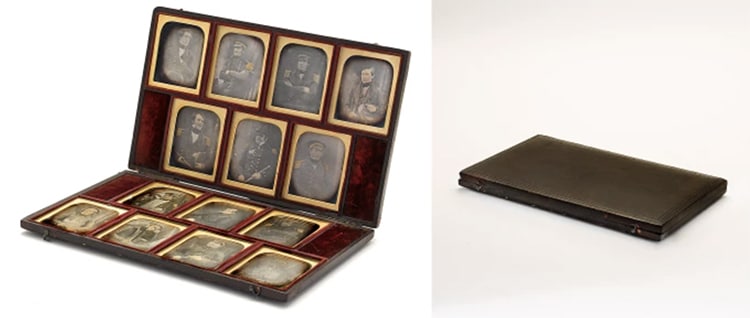
The 14 daguerreotypes of the officers of the Franklin expedition, 1845. (Photo:Sotheby’s)
They are excellent qualitydaguerreotypes, a photographic process which was quite new at the time.
The 129 men set out on theHMS Erebus and HMS Terror.
The rest of the men perished on land in northern Canada as they likely starved and froze.
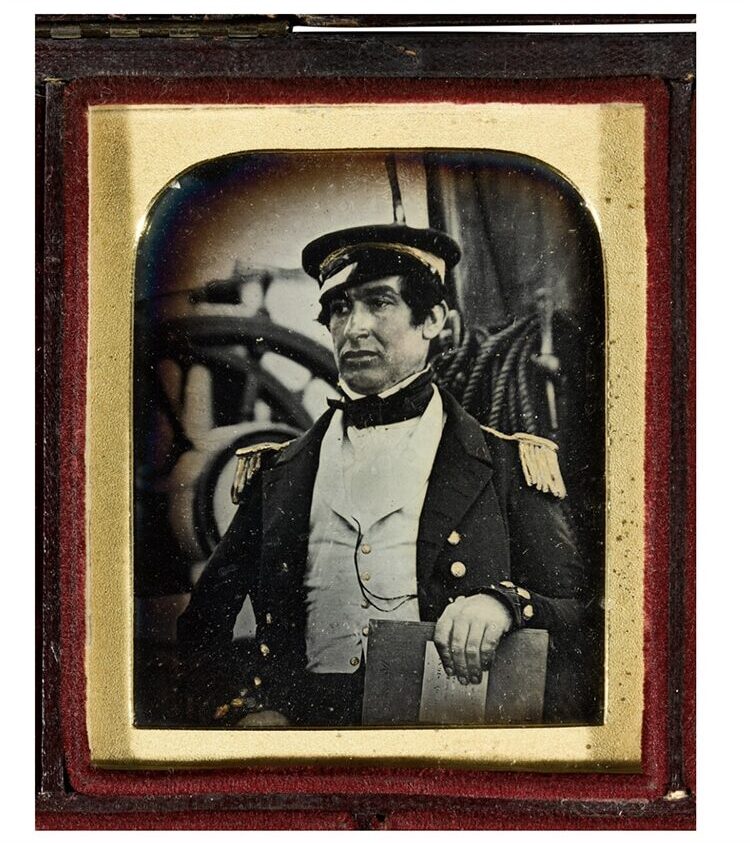
A member of the expedition. (Photo:Sotheby’s)
When the ships vanished, search parties were eventually sent out by the British government.
The ships were not found by these 19th-century rescuers, but were eventuallydiscoveredin 2014 and 2016 using modern technology.
Now, the rediscovery of the officer daguerreotypes is yet another piece of the puzzle.
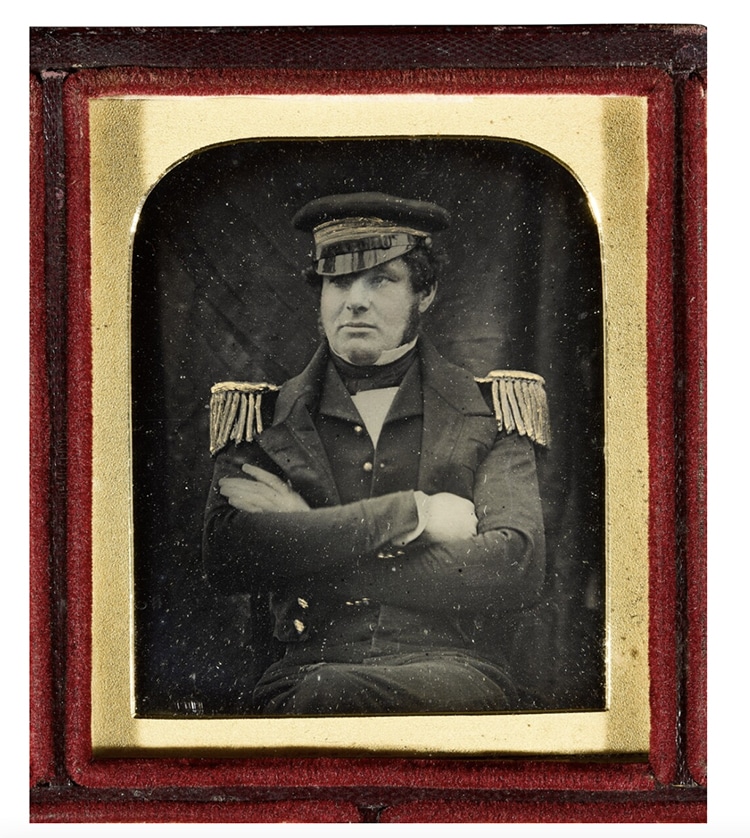
A member of the expedition. (Photo:Sotheby’s)
A member of the expedition.
Sketches based on the daguerreotypes, which were published in 1851 in The Illustrated London News.
(Photo:Wikimedia Commons, Public domain)
The Victory Point note found in a cairn.
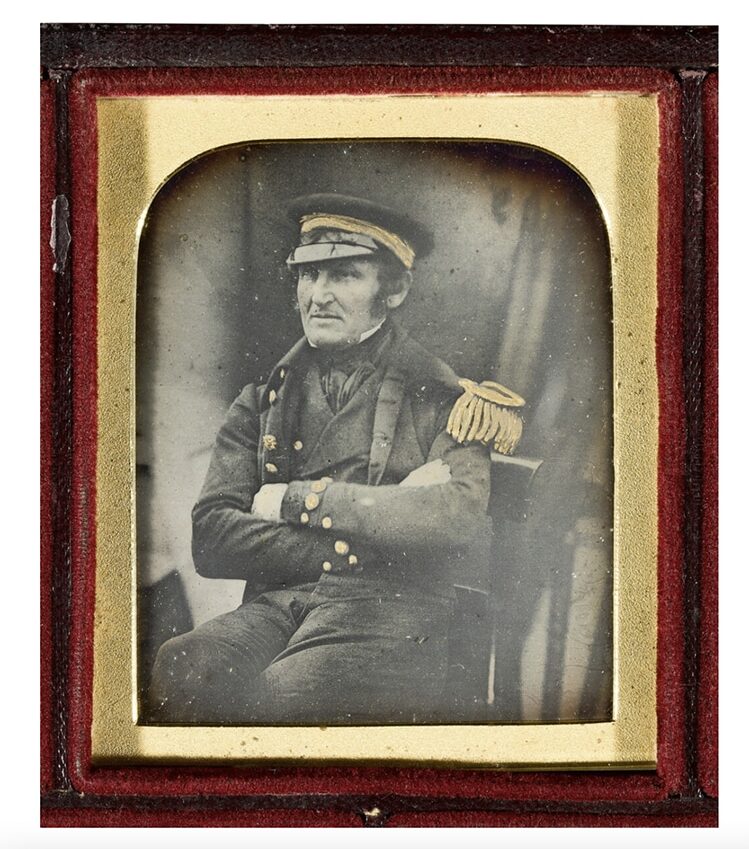
A member of the expedition. (Photo:Sotheby’s)
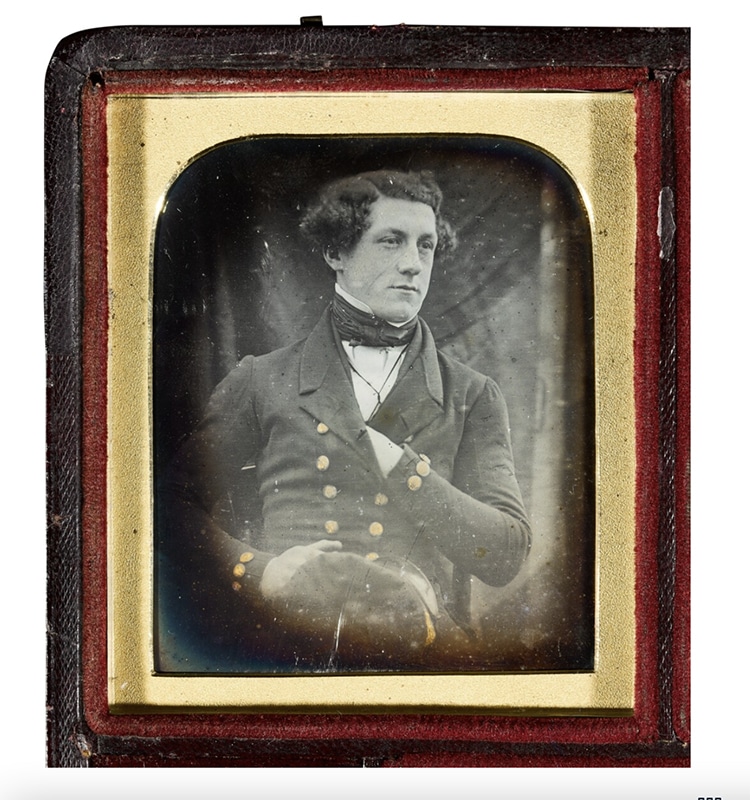
A member of the expedition. (Photo:Sotheby’s)
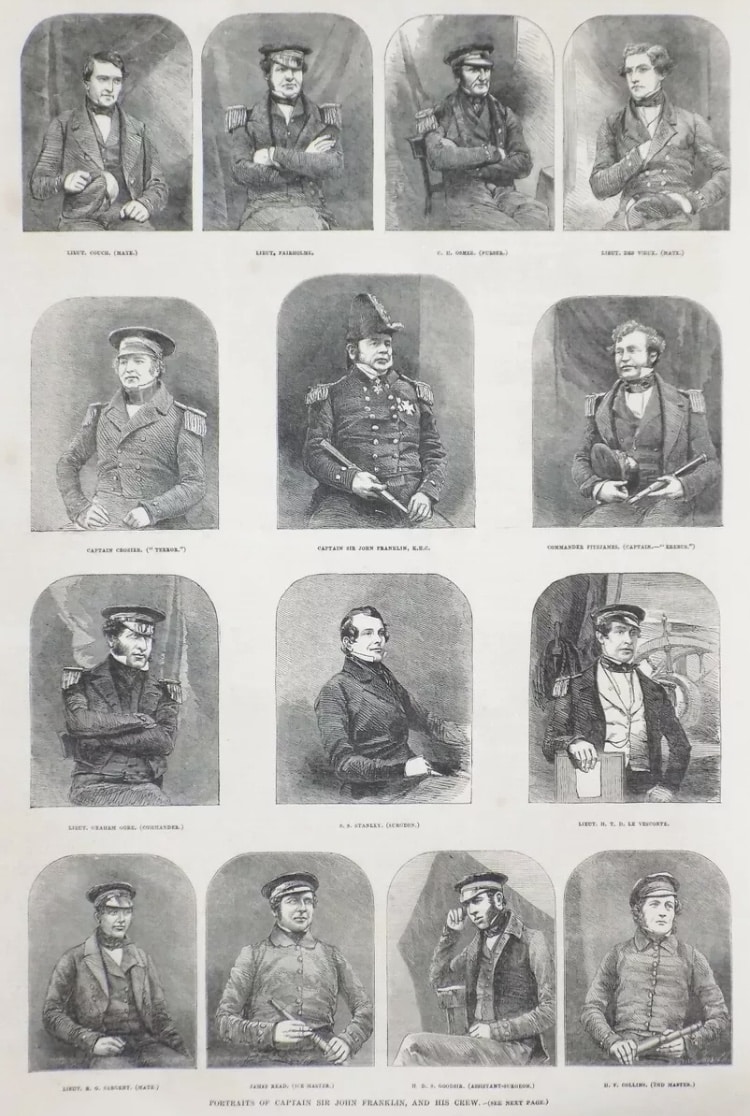
Sketches based on the daguerreotypes, which were published in 1851 in “The Illustrated London News.” (Photo:Wikimedia Commons, Public domain)
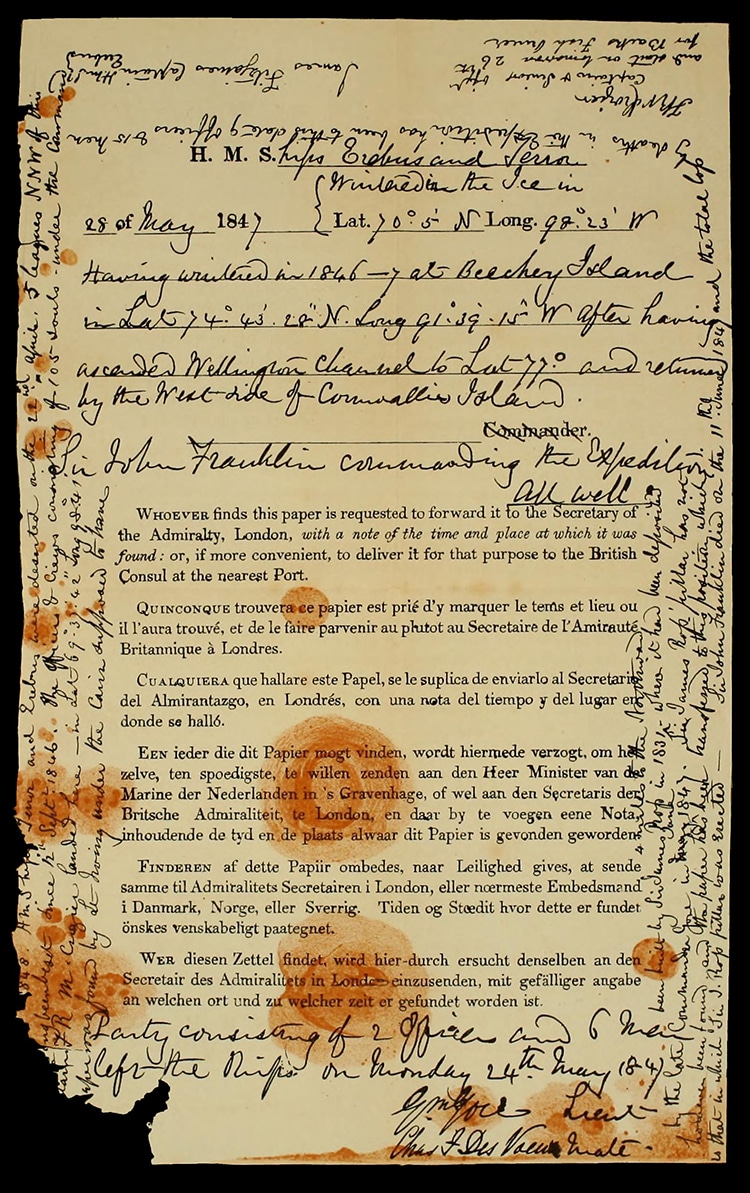
The Victory Point note found in a cairn. (Photo:Wikimedia Commons, Public domain)
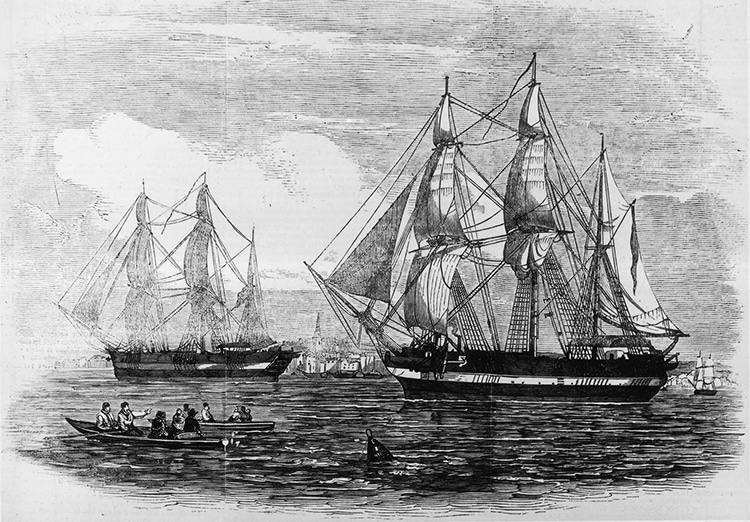
An engraving of the HMS Erebus and HMS Terror setting off. (Photo:Wikimedia Commons, Public domain)